The world of SEO is evolving faster than ever, and Artificial Intelligence (AI) is at the heart of this transformation. As search engines become smarter, traditional optimization methods are no longer enough. To stay ahead in 2026 and beyond, businesses must embrace innovative AI-driven SEO strategies that combine automation, personalization, and real-time adaptability.
Let’s explore how AI is reshaping the SEO landscape and the top strategies to future-proof your digital presence.
Gone are the days of manual keyword discovery. AI-powered keyword research tools now analyze billions of data points to reveal user intent, trending topics, and long-tail phrases that humans might overlook.
These intelligent tools can:
Predict emerging keywords before they trend
Group keywords by semantic relevance
Identify search intent (informational, navigational, or transactional)
Suggest content clusters for better topical authority
By leveraging AI insights, marketers can craft content strategies aligned with real-time audience needs and search engine algorithms.
AI is no longer just a writing assistant—it’s an SEO powerhouse. Modern AI content tools analyze tone, structure, readability, and keyword distribution to produce highly optimized, human-like content.
For best results:
Use AI to draft outlines or generate topic ideas
Humanize AI-generated text to maintain authenticity
Optimize headings, meta tags, and internal links using AI recommendations
The key is collaboration—AI provides data-driven precision, while humans add creativity and emotional intelligence.
Voice search continues to rise with smart speakers and mobile assistants. In 2026, nearly half of all online searches are expected to be voice-based.
To optimize for this trend:
Focus on natural, conversational phrases
Use FAQ-style content and structured data markup
Target local SEO with voice-friendly keywords (e.g., “near me” searches)
AI algorithms also help analyze voice data patterns, enabling brands to adapt content for how people speak rather than type.
Predictive analytics is revolutionizing SEO strategy. AI models can now forecast algorithm updates, traffic fluctuations, and keyword ranking changes before they happen.
With predictive SEO, marketers can:
Identify content that’s losing traction
Update pages before rankings drop
Forecast ROI for each keyword cluster
This proactive approach replaces reactive SEO, keeping your website always one step ahead of search trends.
Search engines reward websites that deliver exceptional user experiences. AI helps analyze user behavior—such as click patterns, dwell time, and bounce rates—to personalize website content in real time.
Examples include:
Dynamic content suggestions based on user interests
AI chatbots for on-page engagement
Personalized product or blog recommendations
This level of customization not only boosts engagement but also strengthens SEO signals like time-on-site and user satisfaction.
With the rise of image-based platforms and visual search tools, optimizing visual content has become critical. AI-powered image recognition technology allows search engines to “see” and interpret visuals more accurately than ever.
Best practices:
Add descriptive alt text and file names
Use AI tools to auto-tag and categorize images
Leverage structured data for product and visual search
As Google Lens and similar technologies evolve, visual SEO will be a key differentiator in 2026.
AI now assists in automating technical SEO tasks such as crawling analysis, broken link detection, and site architecture optimization. Machine learning tools can detect site health issues faster and suggest fixes with higher precision.
AI-driven insights can improve:
Page load speed
Mobile usability
Core Web Vitals performance
Schema markup accuracy
The result? Faster, more search-friendly websites that rank higher and deliver smoother user experiences.
Link building remains vital—but in 2026, it’s all about quality and relevance, not quantity. AI tools can analyze backlink profiles, detect spammy links, and suggest credible outreach opportunities.
By using AI to:
Identify high-authority link prospects
Predict link value based on context and topic
Automate outreach personalization
…businesses can build stronger, more sustainable backlink strategies.
As AI becomes integral to SEO, ethical usage is more important than ever. Search engines value transparency, originality, and content integrity.
Ensure that your AI strategies:
Respect user privacy and data security
Avoid manipulation or keyword stuffing
Maintain authentic human input in all outputs
Ethical AI practices will be a defining factor in long-term SEO success.
AI SEO is no longer a futuristic concept—it’s the foundation of modern digital marketing. From keyword discovery to content creation, from user experience to predictive analytics, AI empowers businesses to work smarter, not harder.
The future belongs to those who blend AI precision with human creativity. By adopting these next-gen AI SEO strategies for 2026 and beyond, you’ll not only boost your rankings but also deliver genuine, lasting value to your audience.
AI SEO uses artificial intelligence to optimize websites for search engines. It is important in 2026 because AI can analyze data at scale, predict trends, and enhance user experience, helping websites rank higher and stay ahead of competitors.
AI-powered tools analyze billions of data points to identify trending keywords, long-tail phrases, and user intent. They also group keywords by semantic relevance and suggest content clusters for better SEO strategy.
Yes. AI content tools help create highly optimized, human-like content by analyzing tone, readability, and keyword distribution. When combined with human editing, it boosts search engine rankings and user engagement.
With the rise of smart assistants, nearly half of online searches in 2026 are expected to be voice-based. AI helps optimize content for conversational queries and local searches, improving visibility for voice search users.
Predictive SEO uses AI to forecast algorithm updates, traffic changes, and keyword ranking trends. This allows marketers to update content proactively and maintain or improve rankings before issues arise.
AI analyzes user behavior such as clicks, dwell time, and bounce rates to provide personalized content recommendations, chat interactions, and product suggestions. Personalized experiences improve engagement and SEO metrics.
Visual and multimodal SEO focuses on optimizing images, videos, and other media for search engines. AI tools can tag images, generate alt text, and apply structured data, helping content rank in visual search results.
AI automates technical SEO tasks like crawling analysis, broken link detection, and site architecture optimization. It also helps improve page speed, mobile usability, and Core Web Vitals for better search performance.
Yes. AI analyzes backlink profiles, identifies high-authority link opportunities, predicts link value, and automates personalized outreach. This ensures a quality-driven, sustainable link-building strategy.
Ethical AI SEO ensures transparency, originality, and content integrity. It avoids manipulative practices like keyword stuffing, respects user privacy, and maintains human oversight—critical for long-term search engine success.
SEO Expert
As an SEO Expert, I'm dedicated to optimizing digital content for maximum visibility and engagement. With a deep understanding of search engine algorithms and trends, I specialize in driving organic traffic and improving website rankings. My expertise spans keyword research, on-page and off-page optimization, technical SEO, and analytics. The Ads Management Services You Can Expect From a Top-rated PPC Company in Delhi
The Ads Management Services You Can Expect From a Top-rated PPC Company in Delhi
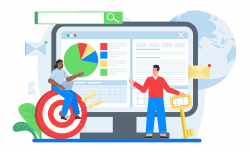 The Range of SEO Solutions That Experts Can Implement To Grow Your Business
The Range of SEO Solutions That Experts Can Implement To Grow Your Business
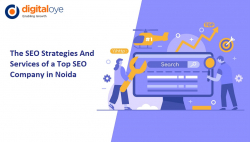 The SEO Strategies And Services of a Top SEO Company in Noida
The SEO Strategies And Services of a Top SEO Company in Noida
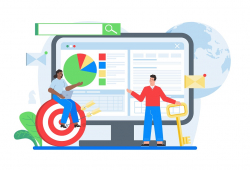 Why New and Old Businesses Should Hire a Reputable SEO Company
Why New and Old Businesses Should Hire a Reputable SEO Company
 Local SEO in 2026: Proven Ways to Rank Higher in Your Area
Local SEO in 2026: Proven Ways to Rank Higher in Your Area
 How the SEO Companies Can Help You To Rank in ChatGPT
How the SEO Companies Can Help You To Rank in ChatGPT
 How to Use AI SEO to Improve Your Website
How to Use AI SEO to Improve Your Website
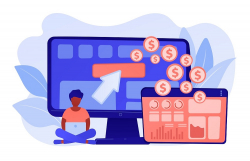 PPC Services That Help Your Business Reach the Right Audience
PPC Services That Help Your Business Reach the Right Audience
 What Are Large Language Models (LLMs) and Why They Matter in AI SEO
What Are Large Language Models (LLMs) and Why They Matter in AI SEO
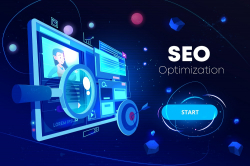 What is AI SEO and How Can It Boost Your Rankings in 2025?
What is AI SEO and How Can It Boost Your Rankings in 2025?